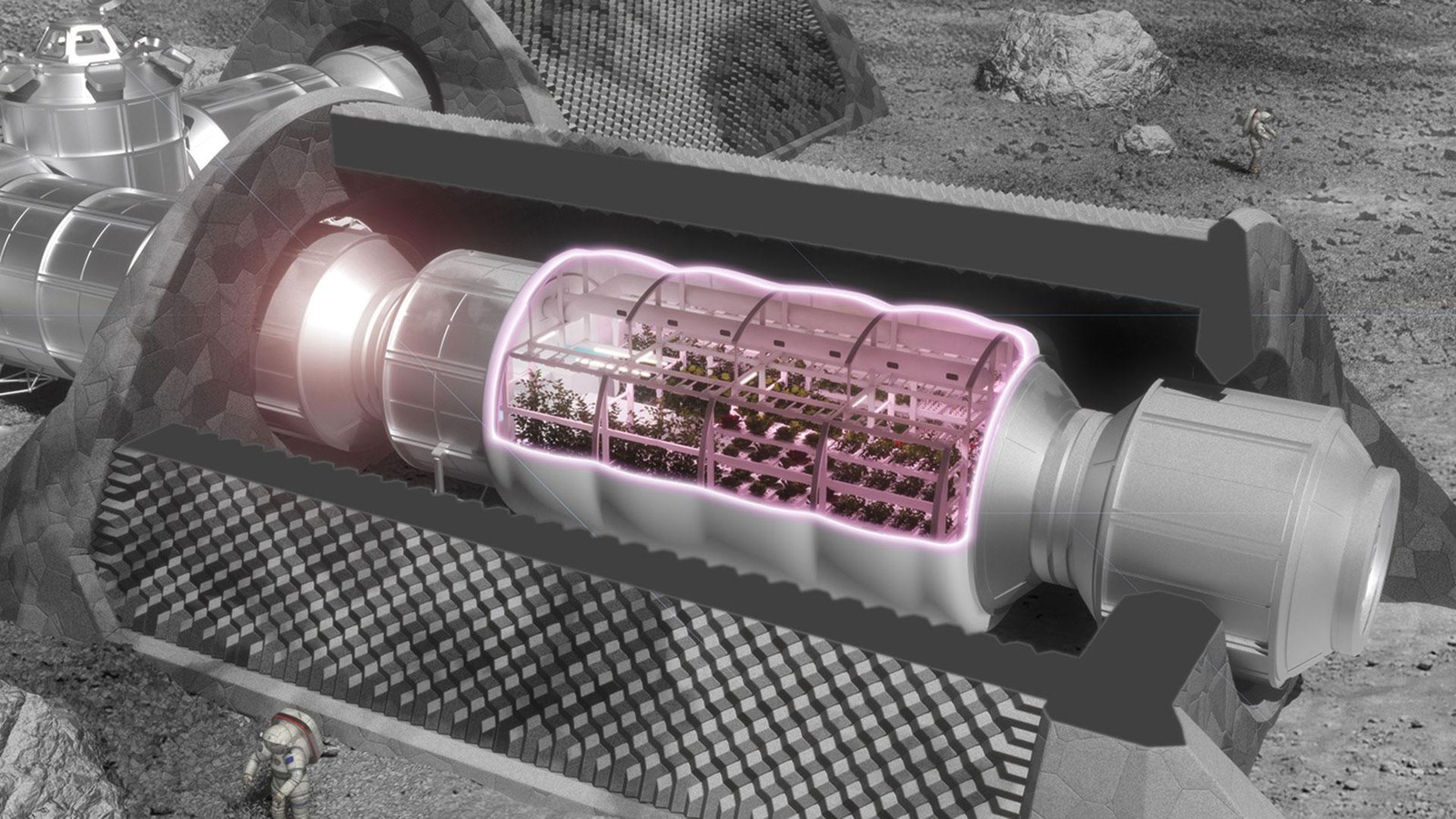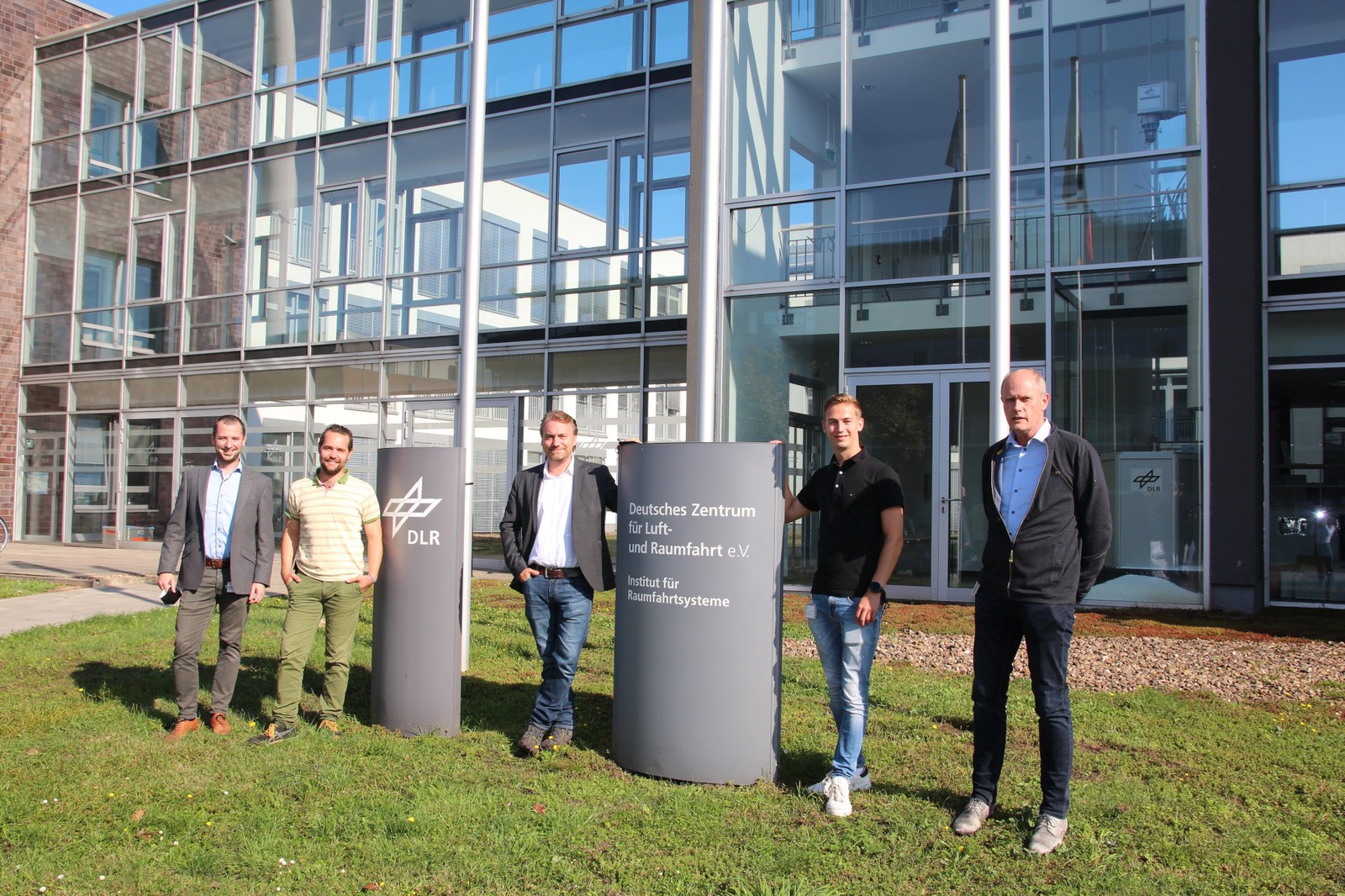Mixing system prototype for future greenhouses on the Moon



- DLR and its partners are developing greenhouse systems for future space missions.
- Two new prototypes of a nutrient mixing system for future Moon and Mars greenhouse modules have now been installed at DLR Bremen.
- Goal is to build a full-size demonstrator by 2025.
- Focus: Space
Developing greenhouse systems is of great importance and requires Bio-regenerative Life Support Systems (BLSS) to ensure that the lives of crew members are sustained. Two new prototypes of a nutrient mixing system for future Moon and Mars greenhouse modules have now been completed and installed following a successful design and development phase between Priva and the German Aerospace Center (Deutsches Zentrum für Luft- und Raumfahrt; DLR) that lasted over a year. Tests of the promising systems are commencing at DLR's EDEN laboratory in Bremen. The aim is to build a 1:1 demonstrator of a lunar greenhouse system by 2025.
"The modular design of the prototypes will make it possible to adapt the system flexibly to changing needs in the future. Even today, findings from space research can be used for the food production of the future in climatically unfavourable areas such as deserts and arctic regions," explains Anke Kaysser-Pyzalla, Chair of the DLR Executive Board.
Water, oxygen and food
Both prototypes with the surface area of a Euro pallet were installed by Priva during a visit to the DLR Institute of Space Systems in mid-September. An efficient automated nutrient mixing system is an essential component of future research work. "The mixing computers represent a central element of the nutrient delivery system and enable a perfect regulated supply of nutrients for the plants. The strategic partnership with Priva allows us to accelerate the development process for our planned extraterrestrial greenhouse system," says Daniel Schubert, Project Coordinator and founder of the EDEN Group at the DLR Institute of Space Systems. Integrated CEA (Controlled Environment Agriculture) technologies are essential for the reliable provision of water, oxygen and fresh food.
Compact system with precise dosing
After more than 18 months, the design and development phase of the mixing system is now coming to an end. "The mixing system will be tested with the focus on indoor or small-scale facilities. We placed particular emphasis on a small and compact system that is capable of dosing with high precision." says Edgar Konijnendijk, Manager Water Systems at Priva. The nutrient mixing systems are novel prototypes that the Dutch company has developed exclusively for DLR research as part of the EDEN Group. The unit includes three defined systems. One of them is responsible for the water level control in the mixing tank, one for the dosing of the fertiliser, and one for the irrigation and drain feed. The entire system is controlled with the Priva control computer (Connext). Different types of fertiliser solutions, growing methods and mixing ratios are tested during the test phase. A modular setup of the system will be used to adapt to all needs in future testing.
Technology test for a greenhouse on the Moon
In the coming months, the DLR team will connect the prototypes to the irrigation infrastructure of the Closed-loop Test Facility (CLTF) inside the EDEN laboratory in Bremen. The CLTF is a complete rebuild of a space greenhouse system as envisioned for the Moon and Mars. The nutrient solution, provided by the two prototypes, is sprayed every five minutes to the roots inside the greenhouse. The DLR team plans to investigate the microbial spread patterns, nutrient mix variations, and irrigation optimisations will be studied in more detail. "With these prototypes we have reached an important milestone for our planned development roadmap of building up a complete 1:1 test demonstrator of a lunar greenhouse system by 2025," says Daniel Schubert.
Climate, mobility and technology are undergoing global change
DLR uses the expertise of its 55 research institutes and facilities to develop solutions to these challenges. Our 10,000 employees share a mission – to explore Earth and space and develop technologies for a sustainable future. In doing so, DLR contributes to strengthening Germany's position as a prime location for research and industry.
About Priva
Priva is a technology company that develops hardware, software and data-services in the field of climate control, energy saving and optimal reuse of water. With 500+ colleagues, 16 local offices and over 450 international installation partners Priva delivers sustainable solutions and services in more than 100 countries. The company's goal is to contribute to the future, by creating a healthy working and living environment, as well as access to safe and nutritious food.
